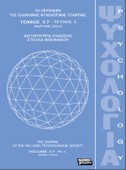Learner identities and the will to understand: The experiences of undergraduate biosciences students in the UK

Abstract
Understanding depends on applying a particular kind of effort to learning. The research reported in this article investigates what influences students’ willingness to engage in the kinds of active learning which would be required for a deep personal understanding of the “ways of thinking and practising” of their subject area. The analysis is based
on 19 group interviews with 59 experienced biosciences students from three contrasting types of university in the UK, drawn from a more extensive set of transcripts from a large-scale national project. A rigorous thematic analysis of the data was carried out using HyperRESEARCH, a computer program which has the flexibility to allow thorough and diverse analyses of qualitative data. The findings illustrate the interplay between the will to understand, aspects of students’ identities and key dimensions of the contexts within which they were learning. Where interaction between the students and their learning context allowed for more authentic learning experiences, this seemed to have a positive influence on their willingness to engage actively and critically with their studies.
Article Details
- How to Cite
-
McCune, V. (2020). Learner identities and the will to understand: The experiences of undergraduate biosciences students in the UK. Psychology: The Journal of the Hellenic Psychological Society, 17(4), 313–324. https://doi.org/10.12681/psy_hps.23770
- Issue
- Vol. 17 No. 4 (2010)
- Section
- SPECIAL SECTION

This work is licensed under a Creative Commons Attribution-ShareAlike 4.0 International License.
The journal PSYCHOLOGY adopts a Platinum open-access policy. Submission, processing or publication costs are waived by the Hellenic Psychological Society. Papers published in the journal PSYCHOLOGY are licensed under a 'Creative Commons Attribution-ShareAlike 4.0 International' licence. The authors reserve the copyright of their work and grant the journal the right of its first publication. Third-party licensees are allowed to use the published paper immediately after publication as they wish, provided they retain the defined by the license copyright formalities, regarding the reference to its author(s) and its initial publication in the journal PSYCHOLOGY. Moreover, any adjusted work should be shared under the same reuse rights, so with the same CC license.


